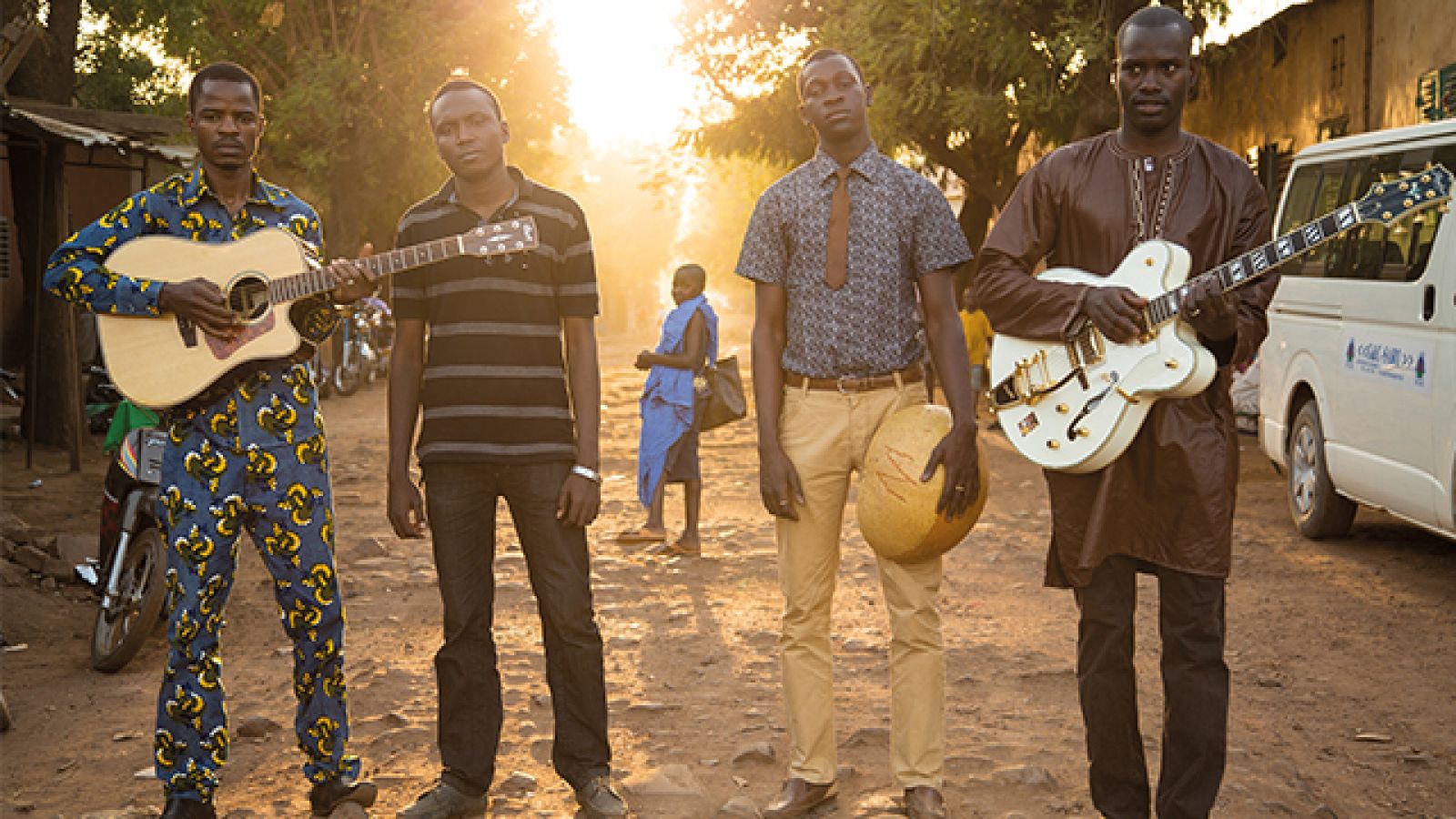Human rights on the big screen

Malian band Songhoy Blues from They Will Have to Kill Us First: Malian Music in Exile. Image supplied by HRAFF.
The Human Rights Arts and Film Festival is back for its ninth year, and the ANU College of Arts and Social Sciences is proud to be a supporting partner.
The festival is hitting seven cities this year, and will be touring Canberra from 3 – 5 June.
HRAFF Program Manager Lauren Valmadre says that the festival aims to challenge, touch and inspire audiences by exploring the most topical and urgent issues of our time.
“We believe HRAFF is an excellent way to engage with human rights and social justice issues as the arts has always been an interesting an accessible way to connect with what’s happening in the world and the people in it,” Lauren says.
She and Program Director Malcolm Blaylock sought to cover a wide range of issues, countries and perspectives within the festival program. For Canberra audiences, Lauren and Malcolm have chosen a dynamic collection of the festival’s highlights.
“For Opening Night we have chosen They Will Have To Kill Us First: Malian Music in Exile, a vibrant, musical documentary exploring how Malian musicians are fighting to keep their culture and artistry alive during the Islamic extremist occupation,” Lauren says.
The second film, screening on 4 June, is Land Grabbing. It’s a documentary that takes a hard look at the acquisition and re-purposing of billions of hectares of farmland by wealthy individuals, organisations and governments, and the social and environmental impacts of this.
Closing the HRRAF in Canberra is the documentary The Bad Kids, which was recognised with a special jury award at Sundance earlier this year.
“The Bad Kids is a deeply moving and heart-warming film about disadvantaged and outcast teens in the US, overcoming many obstacles to obtain an education,” Lauren explains.
“The three films I think perfectly summarise what HRAFF is, inspiring, enlightening and deeply involving.”
Lauren says that she and the festival team hope that HRAFF will enlighten audiences about current issues to with human rights and social justice.
“Whether the response is simply thought or physical action, we hope to leave a positive impression,” she says.
“Obviously we hope that HRAFF leads to positive action and change within the community, but that’s something audiences need to get to on their own.
“We very much hope to see as many people as possible to celebrate the fine films from all over the world that explore the issues of our time, and what it truly means to be human.”